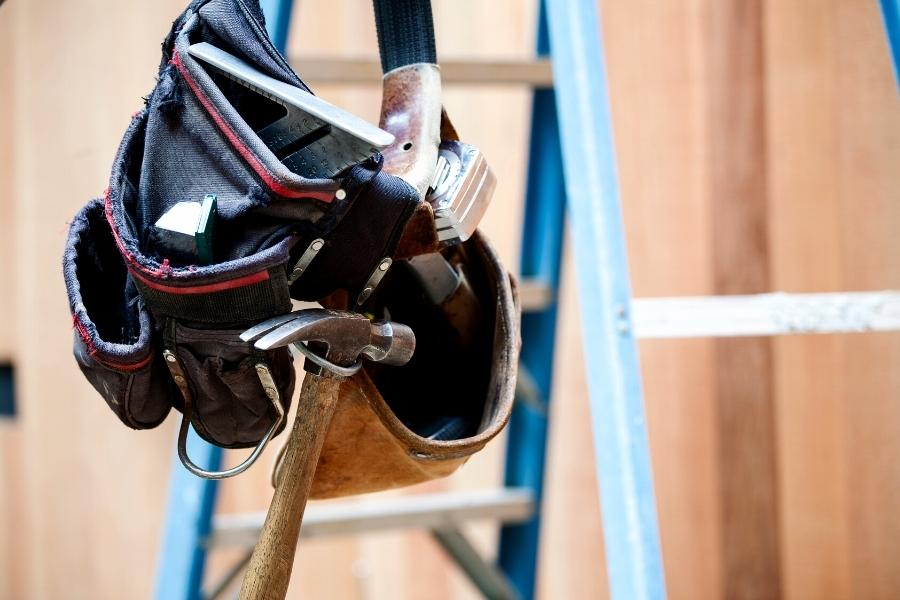David Simkins Understands the Power of Tech-Driven Real Estate
Avoid Delays from Construction Shortages with Curbio’s Streamlined Approach
If you’re struggling to find the contractors and materials necessary to get listings ready for market, you’re not alone. Agents and homeowners across the country are struggling to find contractors to complete even the smallest of jobs. Unfortunately, even when they’re able to find a reliable contractor, their transactions are still being put at risk because of delays and price increases caused by the shortages in lumber, home goods, and skilled workers. Lumber prices spiked significantly last year, and stories of waiting a whole year for one piece of furniture are frequent. So, how did it get this bad?
To tell the full story, it’s best to rewind back to the Great Recession of 2008.
The Great Recession stretched from 2007-2009, but the effects on the construction industry lasted much longer—from around 2006 to 2013. Millions of jobs were lost, and thousands of businesses were affected. To put it into perspective, pre-recession, the total monthly valuation for all construction was $1.2 trillion. When the industry bottomed out in February 2011, the value of construction in place was just under $755 billion dollars. The number of employees also fell drastically—from 7.7 to 5.4 million.
Now, let’s fast forward back to today.
While the industry has largely recovered, many skilled workers, including carpenters, hung up their tool belts when the industry bottomed out, never to return again. Another set of workers is simply ready for retirement. Finally, the industry hasn’t received the same influx of new workers from younger generations because of negative perceptions toward trades as well as an assumption that attending college is the only way to earn a livable wage.

While the number of skilled workers is on the decline, demand for the goods and services they provide is on the rise. Why?
There’s a serious mismatch of supply and demand within residential real estate. Not only are there not enough new homes to fill the needs of millennials—who represent the largest generation since the baby boomers as well as the current largest home-buying generation—but the condition of homes in existence doesn’t meet consumer preferences.
Almost 80% of homes in the US are now at least 20 years old. 40% are at least 50 years old. The aging of America’s housing stock means we need contractors to not only build new homes, but also to fix up the existing ones, especially since buyers have a huge preference for move-in ready.
The COVID-19 pandemic has only put more pressure on the home improvement industry, as homeowners continue to transform their spaces for a different kind of life. What’s worse is that this onset of home improvement was completely unexpected by the suppliers of the industry. Sawmills had actually slowed down and even halted production out of fear of a housing crash like the one we experienced in 2008. Wholesalers also sold off inventory and chose to dial back operations. Ramping back up was made difficult due to pandemic-related restrictions, which is only slowing our progress toward a better supply chain.
Pair the aging housing stock, millennial preferences for turnkey homes, and the spike in home improvement projects brought on by the pandemic with the shortage of construction-related goods and services, and you’ve got an incredibly overstretched workforce. This is resulting in countless project delays and steep costs—and that’s if you can even find a contractor with the time and materials available to do the job!
So, what can we do?
The quickest way to address the shortages within the construction industry is to find ways to make the most of the goods and services available.
Changing how construction operates
Renovations have been done the same way for decades. Most of the work is completed by independent contractors in the US, who each have their own approach. The problem is that these different approaches are almost all rooted in inefficient labor and manual processes—resulting in waiting weeks just to get a proposal. Once projects do get started, they often suffer from poor communication, frequent delays, and the surprise of added costs. For real estate, this can be a deal killer and present a lot of risk to agents who need to get their client’s homes market ready.
The industry needs streamlining, which is why Curbio is reinventing home improvement for real estate with its tech-powered process that takes the coordination away from contractors, so they can focus on what they do best—their trades.
Powered by technology, an extensive five-star trade network, and rock-steady vendor partnerships, Curbio is typically able to complete projects faster than the traditional contractor. Streamlining not only means the projects get completed faster, but it also means that contractors’ time is freed up quicker, so they can complete more jobs and make more homeowners happy.
Updating homes to meet modern-day needs
There’s more demand than supply for new construction, and yet, new housing starts in April fell 9% from March. It’s not an easy problem to solve—especially when we don’t have nearly enough goods and service providers necessary to ramp up building. While the construction industry continues to recover, we can focus on updating homes—that are either outdated or in poor condition—to meet the needs of today’s buyers who are looking for move-in ready.


Of course, to complete home improvement projects, we still need many of the goods and services that are currently in short supply. The fact is that we need a lot less of them to fix up homes than builders require to tear down and rebuild. Because of our streamlined approach, we’re also able to make the most of the limited resources within the industry.
We’re here for you
Curbio is readily available to provide an estimate for your project within 24-hours. Our full-time Project Managers and network of vetted and trained trade professionals allow us to start immediately on any project. Finally, we’ve leveraged our relationships with national vendors to ensure the materials we offer are ready to ship immediately to prevent unnecessary delays in you getting your listings on the market.
Curbio gets your listings market-ready fast, so you can get to closing without delays.


